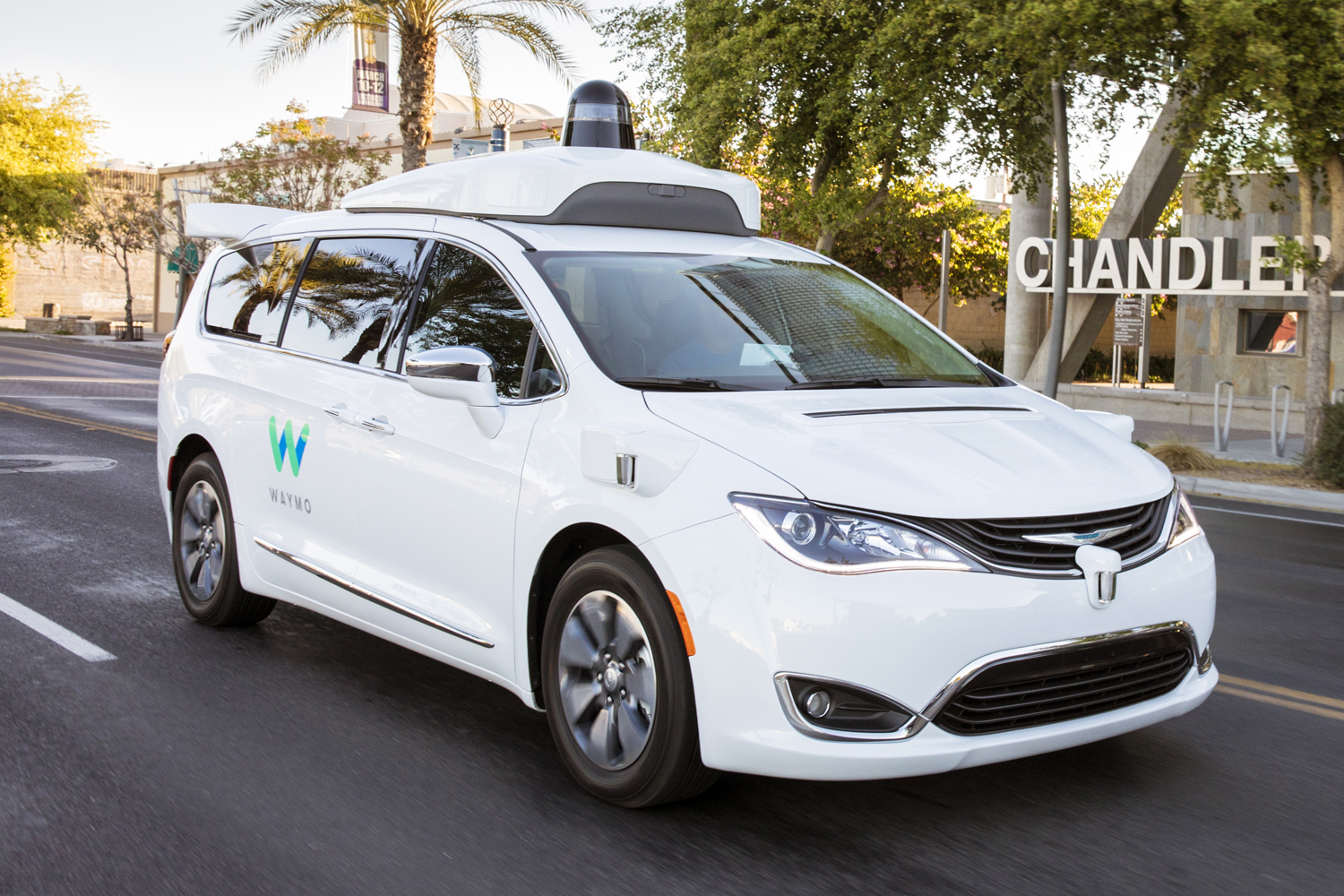
Riders using Waymo’s robo-taxi service in Arizona are now taking trips in vehicles without backup drivers.
In an email sent recently to its rider community, the Alphabet-owned company said passengers will be notified via the Waymo app if it sends them a fully driverless car in response to a ride request. Waymo CEO John Krafcik subsequently confirmed to a group of reporters that so-called “rider only” trips had begun in the Phoenix, Arizona, area, according to Reuters.
Waymo has been testing its fleet of autonomous Chrysler Pacifica minivans since 2017 with a small number of Phoenix residents enrolled in its Early Rider program, and also with select riders using the Waymo One robo-taxi service that it launched at the end of 2018.
Apart from a small number of test rides using fully driverless vehicles, the vast majority of Waymo rides include a backup driver ready to step in should anything go awry during a trip. That’s standard procedure with all companies testing self-driving cars on public roads — whether they carry paying passengers or not.
But now the company says its autonomous technology is advanced enough to offer rides without anyone behind the wheel, giving more riders the chance to experience a truly driverless robo-taxi service.
“As always, if you need assistance during any part of your trip, you can contact a rider support agent through the car’s help button or in your app,” Waymo said in its email to riders, adding that the decision to remove backup drivers from more of its vehicles is “just the next step as we travel down the road toward a fully self-driving future.”
It’s not clear whether the fully driverless vehicles will be assigned to riders randomly, or if they’ll be allocated manually, or using an algorithm, for routes that aren’t so challenging, for example, those that don’t involve busy junctions or left turns. Krafcik did not say how quickly Waymo would expand the “rider only” option, but noted that riders who participate have to sign a nondisclosure agreement, reports Reuters.
The move by Waymo to send out more vehicles without backup drivers is a mark of the company’s growing confidence as it seeks to launch full-fledged robo-taxi services in cities across the U.S.
A recent report by The Information revealed feedback given to Waymo by people who’ve taken rides in the company’s autonomous vehicles. The responses were largely positive, though a few individuals complained about the comfort of the vehicle, as well as “weird drop-offs, circuitous routes, and shaky driving.”
Waymo’s autonomous-car program started life in 2009 and was originally run by Google. With well over 10 million miles of public-road testing under its belt and 10 billion miles in simulation, it’s widely regarded as one of the most advanced programs of its kind currently in operation. In addition to passenger cars, Waymo is testing its autonomous driving tech on commercial trucks. Waymo is considering licensing a completely autonomous driving system to automakers as a way to commercialize the tech, Krafcik told Reuters.


